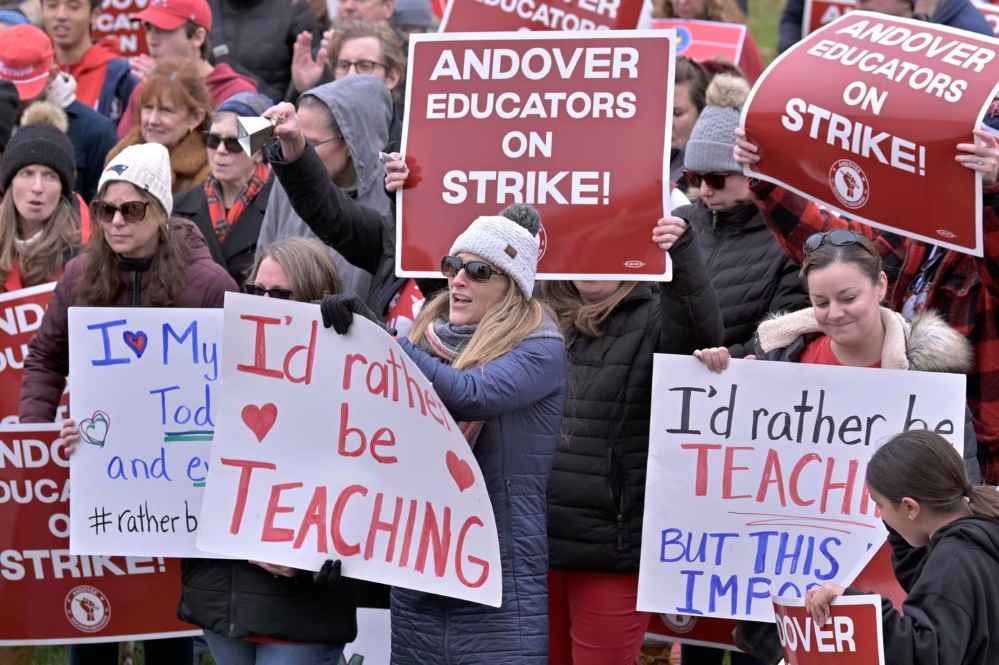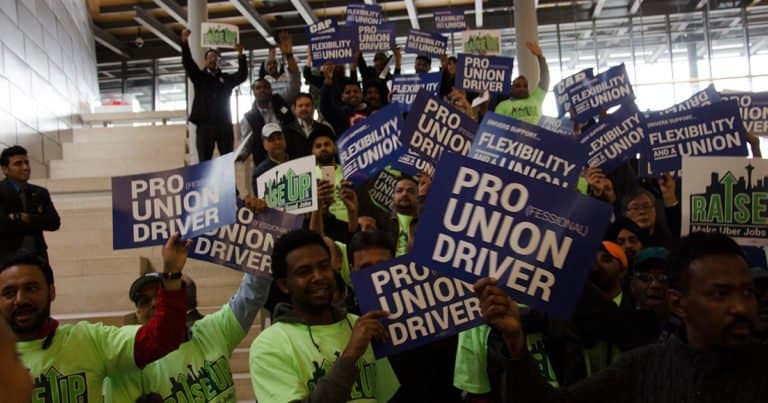In today’s News and Commentary, teachers unions in Massachusetts and Oregon are bargaining new contracts, with educators on both coasts continuing strikes after failed negotiations this weekend.
The Andover Education Association (AEA) enter their fourth day of striking after negotiations this weekend failed. After more than nine months of contract negotiations, on Thursday night, union membership voted overwhelmingly to approve a strike action. Andover Public Schools closed Friday, the first day of the strike. The AEA and the Andover School Committee engaged in bargaining sessions over the weekend, but both sides point to the other for failure to reach an agreement. One sticking point in these negotiations is the union’s demand for a significant raise and improved benefits for instructional aides. These employees currently earn between $25,000 and $38,000, salaries the union says is “far below what is considered a living wage for the region.” The School Committee claims the union’s demands will “tie the hands of the district and the town for years to come” and would require “significant budget cuts that will negatively impact teachers, students, families, and other town residents.” Massachusetts public employees, including teachers, are not legally allowed to strike. The last time AEA engaged in this labor action, the labor relations board ruled the strike illegal.
Students on the other side of the country will also be held home from school again today, as the Portland Association of Teachers (PAT) enters the third week of their first-ever strike. Portland Public Schools’ (PPS) students have not had a single instructional day in the month of November due to holidays, planning days, and the PAT strike. The union’s 103-page proposal includes rules for teachers in early childhood programs and changes to how the district limits class sizes. Because the district’s administration chose not to open permissive subjects of bargaining, PPS’s proposal is substantially shorter, at only 58 pages. The two sides met over the weekend for mediated sessions, but remain millions of dollars apart on compensation alone. Negotiations will resume on Tuesday. Educators across the state of Oregon are facing similar labor strains, with over 70 districts engaging in contract negotiations this school year. The Portland negotiations will be instructive for the upcoming bargaining sessions across the state.







Daily News & Commentary
Start your day with our roundup of the latest labor developments. See all
October 17
Third Circuit denies DOL's en banc rehearing request; Washington AG proposes legislation to protect immigrant workers; UAW files suit challenging government surveillance of non-citizen speech
October 16
NLRB seeks injunction of California’s law; Judge grants temporary restraining order stopping shutdown-related RIFs; and Governor Newsom vetoes an ILWU supported bill.
October 15
An interview with former NLRB chairman; Supreme Court denies cert in Southern California hotel case
October 14
Census Bureau layoffs, Amazon holiday hiring, and the final settlement in a meat producer wage-fixing lawsuit.
October 13
Texas hotel workers ratify a contract; Pope Leo visits labor leaders; Kaiser lays off over two hundred workers.
October 12
The Trump Administration fires thousands of federal workers; AFGE files a supplemental motion to pause the Administration’s mass firings; Democratic legislators harden their resolve during the government shutdown.